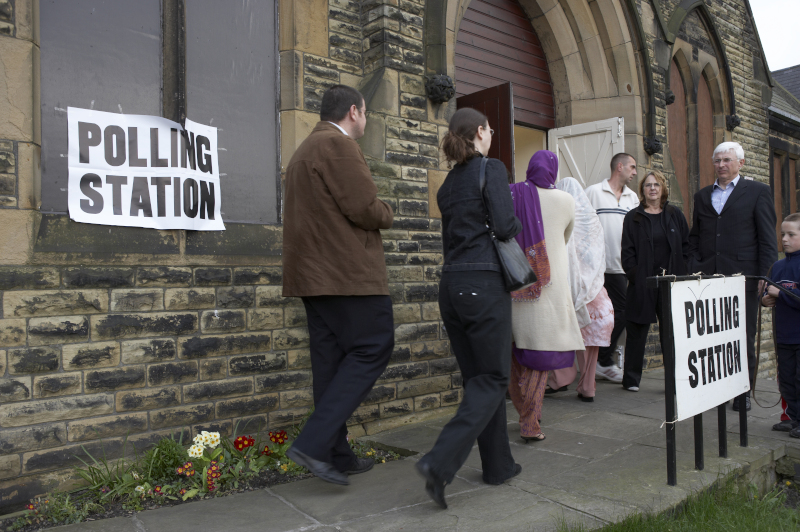
Social democracy seemed close to being the natural order in 2000. Almost all governments in the western world were in the hands of broadly moderate left-of-centre administrations. Many enjoyed outright majorities; others had a dominant position in coalitions. Now, with the exception of Portugal and, more doubtfully, Spain’s fragile coalition, no major western country has a moderate left-of-centre government.
The prospects look bleak. America’s Democrats are divided, and left-of-centre parties across most of Europe are in disarray. Some have stayed moderate and seen their membership collapse (as in Germany). Others have moved sharply to the left, as with the Labour Party in the UK and La France Insoumise. Such shifts do not seem to bring electoral success.
How have these once stable election-winning coalitions fallen apart? Left-of-centre parties have become home to more idealistic, well-educated, internationalist-minded (and relatively high earning) voters, often public sector or successful service sector employees. It is industrial workers that have abandoned ship. A recent poll in the UK showed an 18-per cent majority of C2, D and E voters favouring the Conservatives rather than Labour. In the USA, Donald Trump has solid support in the rust belt states. In France, it is largely working people who have flocked to the banner of what used to be called the Front National and is now rebranded as the National Rally.
Social democrats’ economic policy problems started with the financial crisis of 2007–08. Many moderate left-of-centre governments presided over this crash, which led to stagnant or falling incomes for the majority of the population. This hurt almost everyone other than the ultra-rich who have gained enormously, at least in asset terms, from the post-crash low-interest rate regime. Many social democratic governments lost power in the aftermath of the financial crisis, handing the reins to centre-right governments.
Since then, much of the rest of the population, including key left-of-centre working-class voters, have been on the receiving end of austerity programmes which have seriously affected the public services which underpin their security and lifestyles. This might not have been so lethal to working-class support if social democrats had a convincing critique of the austerity policies imposed by right-of-centre governments and an alternative way of running the economy which might have improved average living standards. Unfortunately, the best they could offer was “Austerity Lite”: unconvincing promises of fiscal rigour, but implemented more kindly.
The Left’s ineffectiveness stems from the capture of almost the whole of the economic establishment by monetarist and, subsequently, neoliberal thinking. While chasing inflation down to 2 per cent may have made sense when annual price rises were running close to 30 per cent, lack of economic growth is now a much bigger threat. But social democracy relapsed into accepting a new norm growth rate of barely 1 per cent per annum, which guaranteed stagnant or falling real incomes, combined with increasingly damaging cuts in public services.
A related problem is redistribution. Social democrats’ success depended on an alliance between middle-class people who think that some reduction in their living standards through the tax and benefit system is a price worth paying for a fairer and more stable society and working-class people who hope to be the beneficiaries.
Redistributing incomes has never been that easy. Big chunks of public expenditure, such as that on defence and the legal system, are not intrinsically redistributive at all. Richer people tend to benefit from public spending more than poorer people simply because they consume more of almost everything. The middle classes are better at gaming tax and spending policies than working people, for example, by moving into catchment areas for the best state-run schools, while relatively high-earning public servants have successfully resisted curbs on their inflation-proofed pension schemes. Real resources do move substantially from about the top 5 per cent to the bottom 20 per cent of income earners but on average the 75 per cent in the middle finish broadly where they started.
Globalisation was a boon to the service-orientated liberal intelligentsia, but not for those who saw their manufacturing jobs disappearing as a result of unmanageable competition. High levels of immigration (and especially the free movement of people from poorer EU countries) were a godsend to those benefiting from a plentiful source of people with high work ethics combined with low income expectations. Those who had to compete with them in the jobs market were less keen.
Cultural attitudes differ too. Working-class people tend to be more patriotic than their internationalist middle-class counterparts. They are largely uninterested in identity issues or political correctness. They regard the political elite as being generally self-seeking, out-of-touch and disrespectful. They tend to be culturally conservative and economically pragmatic, whereas middle-class left-of-centre people are inclined to be more socially liberal while some of them, at least, are more driven by economic ideology. All these clashes in attitudes were clearly evident in the 2019 general election.
How, then, are the many people who want to vote for a moderate left-of-centre government again going to find a home? Parties of the Left may move back towards the political centre, but they will need a much better story to tell on the economy, featuring faster growth, a genuine end to austerity, and—in Britain—closing the country’s huge regional, social and demographic gaps. Given the country’s parlous fiscal state and yawning current account deficit, it will also need to feature stronger international economic performance in manufacturing as well as services, and a credible path to lower borrowing.
The most difficult policy challenge is reindustrialisation: running the economy much more in the interests of manufacturing than services, and making it profitable to site new factories here rather than elsewhere. That means a much lower exchange rate than we have now—perhaps with parity between the pound and the dollar. This is exactly what successful, fast growing economies such as China, Singapore and South Korea do. It is why Japan has recently devalued the yen by about a third. It would mean changing the Bank of England’s mandate, using the tax system and public interest tests to discourage the sale of UK assets abroad, and gaining the agreement of our trading partners. Utopian? Maybe, but if not, expect a long eclipse for social democracy.
